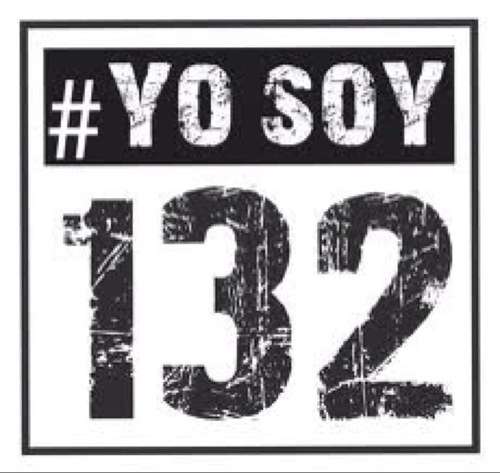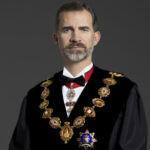
Allow me to turn our attention again to generations abroad—this time to the emerging Millennial Generation in Mexico. And to offer an account about what’s happening generationally in Mexico in the context of the 2012 general election (scheduled for July 1, 2012), I am going to quote at length from a news-rich report emailed to me by Edwin Carcano Guerra. Edwin is a Gen-X polymath:
He teaches business and economics in the International Business College of Yucatan; he starts businesses; he appears frequently in the Mexican media; and he has written books on both economics and chess (check out his study of “Bobby Fischer”). But what’s most interesting for our purposes is that he has been studying the generational history of Mexico for years—and it is in the course of that study that we met and became friends.
Before letting him speak, let me just highlight one great irony in the “Mexican Spring” he describes. Mexico’s rising Millennials—potentially a hero-archetype generation—is protesting against the political tactics of the PRI (the Institutional Revolutionary Party), which was originally created by the last hero generation during the last Fourth Turning. The one-party PRI state was the final and exhausted outcome of an era of indescribable chaos and suffering—beginning with the Mexican Revolution of 1910 and extending through the civil wars and regimentation of the 1920s and ‘30s practically until the eve of World War II.
What will be the final outcome of the era of troubles in which Mexico currently finds itself? Hard to say. We’ll have to have to watch how effectively the young mobilize—and where their mentors (like Edwin) lead them.
Now, Edwin:
For the last six years Mexico has faced tremendous challenges. The War on Drugs has taken nearly 90,000 lives. Young people no longer feel free to go out at night or have fun like students did fifteen years ago. After graduation it’s difficult to find a job. A few in power seem to get everything and the rest are on their own. Mexican youth are tired of it, and they are beginning to fight against the worst of Mexico: corruption, mass-media manipulation, and wealth in the hands of the few.
The Mexican Millennial Generation was born between 1983 and 2006. They represent the largest and most educated generation in Mexico’s history. History indicates that they may turn out to be a civic powerhouse. The country’s previous Hero Archetype generations have produced 28 presidents and governed 73 years out of 200 since independence from Spain.
President Carlos Salinas de Gortari governed Mexico in 1994. During his term he worked hard to make the country one of the world’s strongest economies, and he spoke constantly about economic and social progress. Mexicans believed in him and the future looked very bright. That year, the number of Mexican births reached its historic peak (according to INEGI) as Mexican families looked forward to the future.
Those 1994 babies—right in the middle of the Millennial Generation—are turning 18 this year and they will be voting for the first time in a Presidential Election. The presidential candidates are prepared for “business as usual.” But they won’t get it. They have missed the generational shift from pragmatic young Gen Xers to the civically engaged Millennials. As a Hero Archetype generation, the Millennials are known for their community spirit, their technological prowess, and their support for strong national institutions.
In the 2012 presidential election we have four contenders:
• Enrique Peña Nieto (Gen Xer, born in 1966): He belongs to the PRI and is now the top contender in the polls (42.80%).
• Andres Manuel Lopez Obrador (Boomer, born in 1953): This is his second run for the Mexican Presidency. He belongs to the PRD, Mexico’s left-wing party. Today he ranks number two in the polls, though still far behind Nieto (27.40%).
• Josefina Vazquez Mota (Gen Xer, born in 1961): She belongs to the right-wing party PAN. Today she ranks third place in the polls (26.20 %).
• Gabriel Quadri de la Torre (Boomer, born in 1954): He belongs to the PANAL party, which is also the Teacher’s Union Party. Today he is the last contender in the polls (3.60%).
These candidates are finding themselves embroiled in a new Millennial movement. It all started in May 11 when candidate Enrique Peña Nieto visited the Ibero University and students began shouting protests against him. The PRI tried to minimize the student revolt and the mass media ignored the students, suggesting that they were not real students but hired agitators with orders to sabotage Nieto’s presentation.
However, 131 students released a video that day identifying themselves as real student-objectors and not hired agitators. The video was uploaded to YouTube and heavily promoted on Twitter. Soon, sympathy from other students and other Universities began to mount. In order to show their support, the phrase “I am 132” gained new currency. What began as a social network movement grew rapidly into a large-scale national political movement. The Topic Trend #YoSoy132 became the number one Twitter Topic Trend not only in Mexico, but internationally, as students from around the globe gathered to support their Mexican counterparts.
The movement is being called “The Mexican Spring”—and it is just the tip of the iceberg of what this Millennial generation is likely to accomplish. They see their movement as an outgrowth of the financial crisis, of Mexico’s dead and abducted political activists, and of the poverty in the nation’s rural areas. They want a fair country in which the masses and not the elite elect the government. They are against Enrique Peña Nieto and protest the support he receives from the main TV stations in Mexico, Televisa and TV Azteca.
The TV Stations eventually surrendered and accepted some of the student demands, but that is just the beginning. Student protestors from 54 private and public universities recently held their first congress in the Mexican National Autonomous University. They want peace, prosperity, democracy, dignity, justice, and a Mexico free of corruption. They don’t want to live with the injustice of the past and don’t want to go back to the totalitarian regime of the 70 years of the PRI. They are committed to monitoring the elections to ensure that they are fair. After the elections, they will push an agenda to supervise the elected President and peacefully enact change.
This movement represents the political baptism of the Mexican Millennial Generation. Mexico, like the United States, is going through a Fourth Turning, which will present new challenges and opportunities for broad structural changes. This rising Millennial generation will shape 20th century politics, and help determine the country’s new direction. Thanks to Neil Howe and William Strauss, we can understand these fundamental generational shifts, understand what they mean, and look ahead to what is likely to come next.
Este articulo lo pueden leer en el siguiente link:
http://blog.lifecourse.com/2012/06/mexican-spring/
Se titula “Mexican Spring” y lo escribí como invitado de uno de los mas grandes historiadores de la actualidad: Neil Howe.
Publicado el 10 de junio de 2012





GIPHY App Key not set. Please check settings